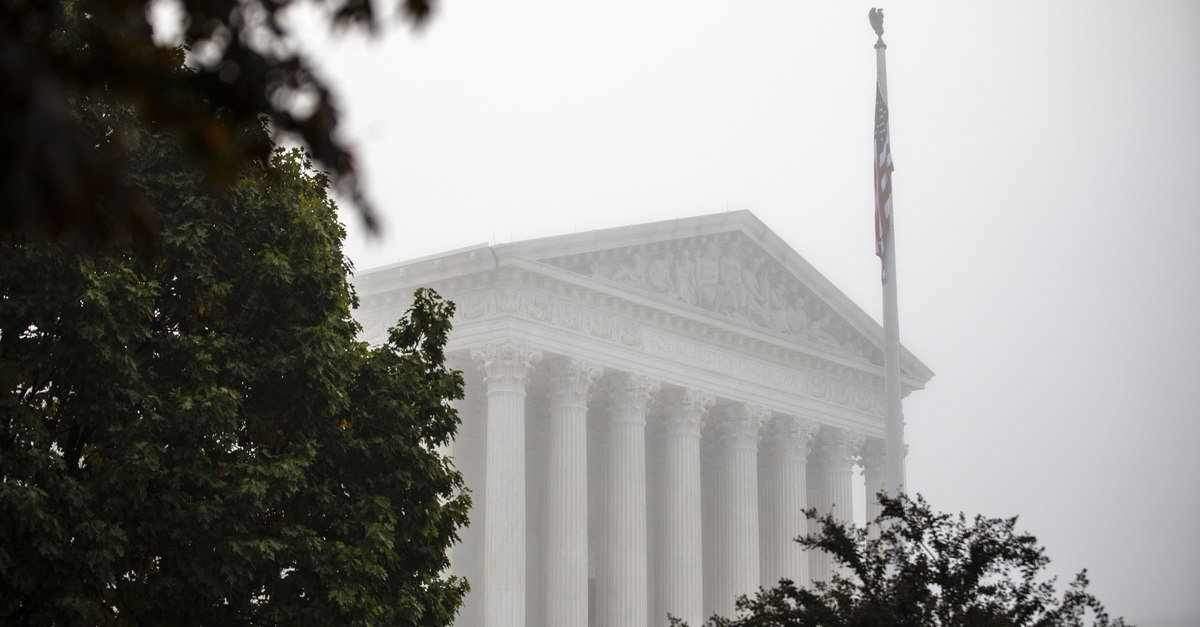
Sen. Sheldon Whitehouse (D-R.I.) and Sen. Lindsey Graham (R-S.C.) want a bit more financial transparency from the nation’s high court.
In an open letter released on Wednesday, the two senators draw attention to the relatively lax financial disclosure regime that governs most of the federal judiciary.
Explaining that the Judicial Conference Committee on Codes of Conduct has “issued financial disclosure regulations,” the senators point out that such regulations “are significantly less stringent than the executive and legislative branch rules” codified in federal law. In fact, the somewhat unusual bipartisan pairing notes, the entire system for taking stock of the nine justices who sit in lifetime judgment on the U.S. Supreme Court is all-but opaque.
“Even those requirements, however, do not apply to the Justices of the Supreme Court,” the letter notes. “As a result, the Justices of our highest court are subject to the lowest standards of transparency of any senior officials across the federal government.”
In other words, the method used to account for the justices’ financial inlays and outlays is effectively nonexistent. And, Whitehouse and Graham suggest, that’s where the U.S. Congress might just step in.
“We believe a legislative solution may be in order to bring the judiciary’s financial disclosure requirements in line with other branches of government if the [Supreme] Court does not address the issue itself,” the letter addressed to Chief Justice John Roberts says.
Whitehouse and Graham appear to have a system in mind that would mirror some of the provisions of the Ethics Reform Act of 1989, which requires senior government officials to disclose outsides income, gifts and reimbursements on an annual basis. But that might just be the baseline for the sort of transparency envisioned by the duo.
“The Executive branch and both chambers of Congress have issued implementing regulations and/or rules that require disclosures beyond what the statute requires,” the letter notes. “For example, executive and legislative branch disclosures rules require descriptions (and, in Congress’s case, documentation) or reimbursed expenditures; narrowly construe the Ethics in Government Act’s ‘personal hospitality’ exception; restrict officials’ receipt of certain gifts and travel; and require prompt online publication of, and easy public access to, financial disclosures.”
The letter concludes with a series of questions that highlight longstanding concerns about the Supreme Court’s impartiality in the face of cash, gifts and other forms of influence.
From the letter:
What plans, if any, does the [Supreme] Court have to adopt a code of ethics, or to bring its gift, travel, and hospitality restrictions and disclosure policies in line with those of the Executive Branch and Congress? If it has no such plans, what justifies the [Supreme] Court having a lower disclosure standard than the other branches of government?
Justice Clarence Thomas has long been rumored to have misrepresented his financial disclosure forms and, in 2011, amended 20 years of disclosures related to his wife’s business interests. In 2020, Thomas made another series of amendments—being joined in the process by Justice Sonia Sotomayor. Prior to being confirmed, Justice Brett Kavanaugh accumulated between $60,000-$200,000 worth of credit card debt on baseball tickets.
The appearance of impropriety has long-motivated court reformers to press for more thorough disclosure requirements on the judiciary.
“What steps does the [Supreme] Court take to identify or prevent the Justices’ receipt of gifts, travel, or hospitality from those who may have business before the Court?” the letter asks—highlighting a common area of inquiry surrounding potential corruption of Supreme Court Justices. “What plans, if any, does the [Supreme] Court have to make the Justices’ financial disclosure reports more accessible to the public?”
[image via Samuel Corum/Getty Images]